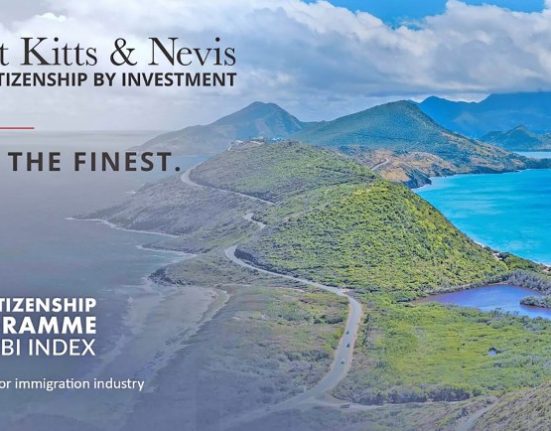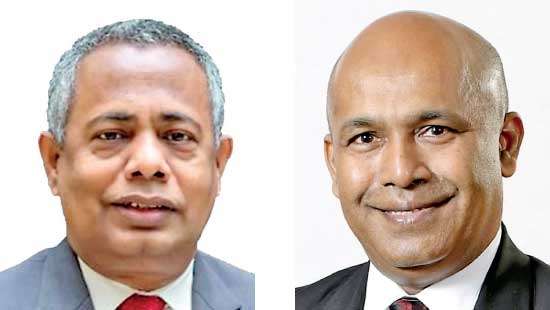Others Specials
Introduction
Pursuing an MBA is a significant investment in your career, and for many students, securing an education loan is a necessary step. However, there’s a key difference when it comes to financing your education for an Executive MBA (EMBA) compared to a Full-Time MBA. While both programs offer valuable qualifications, they come with distinct features that impact the loan process, eligibility, and repayment terms. This article explores the differences in education loans for Executive MBA vs. Full-Time MBA programs, helping you make an informed decision about your educational financing options.
What is the Difference Between Executive MBA and Full-Time MBA?
When deciding between an Executive MBA (EMBA) and a Full-Time MBA, it’s essential to understand the key differences in structure, audience, and program focus.
Here are the key differences:
Executive MBA (EMBA)
The Executive MBA is designed for working professionals with significant managerial experience, typically 5+ years. The program focuses on advanced management skills and leadership strategies, allowing students to balance work and studies. It usually spans 1 to 2 years with evening or weekend classes to accommodate professional commitments.
Key Features of EMBA:
- Targeted at professionals with 5+ years of work experience.
- Duration: 1 to 2 years.
- Flexible schedule with evening and weekend classes.
- Focus on leadership and strategic management.
Full-Time MBA
The Full-Time MBA is a traditional, immersive program aimed at those looking to switch careers or deepen their business knowledge. It’s typically a 2-year program, where students attend classes during weekdays. This full-time commitment enables students to participate in internships and practical business experiences.
Key Features of Full-Time MBA:
- Ideal for those with limited work experience (0-5 years).
- Duration: 2 years.
- Full-time program with weekdays classes.
- Focus on comprehensive business knowledge and specialization.
When exploring financing options for your MBA journey, it’s important to compare lenders that cater to your specific program needs. Propelld offer tailored solutions for both Executive and Full-Time MBA aspirants.
Loan Amounts and Eligibility
Before applying for a loan, it’s essential to understand the eligibility criteria and how much funding you can get for your MBA. Here’s a breakdown of loan options for both Executive and Full-Time MBA programs.
Executive MBA Loan
Eligibility: Lenders typically look for candidates with significant work experience and a steady income source, as the Executive MBA is aimed at professionals. The applicant’s credit score and professional background play a crucial role in loan approval.
Loan Amount: Executive MBA programs tend to have higher tuition fees due to the advanced nature of the program. Education loans for EMBA programs usually cover up to 100% of the tuition fees and related expenses, provided the applicant meets the lender’s requirements.
Full-Time MBA Loan
Eligibility: Eligibility for loans for a Full-Time MBA is primarily based on the student’s academic performance and future career prospects. The requirement for a co-applicant (typically a parent or guardian) is common, as most students do not have an established income stream.
Loan Amount: The loan amount for a Full-Time MBA program can vary, but it often covers up to the full cost of tuition and living expenses. Some banks offer higher loan amounts for students attending top-tier institutions.
Interest Rates and Repayment Terms
Repayment terms and interest rates can significantly impact your financial planning. Let’s compare how they differ between the two MBA loan types.
Executive MBA Loan
Interest Rates: Interest rates for EMBA loans are typically higher compared to Full-Time MBA loans. This is because the applicant is usually a working professional with a steady income, and the loan amount tends to be larger.
Repayment Terms: Since most EMBA students are working professionals, repayment terms for Executive MBA loans are often more flexible. Banks may allow for longer repayment tenures (5 to 15 years) and may offer flexible moratorium periods.
Full-Time MBA Loan
Interest Rates: Full-Time MBA loan interest rates tend to be slightly lower, particularly if the applicant is enrolled in a reputable institution. The rates are influenced by factors such as academic background, the co-applicant’s financial standing, and institutional recognition.
Repayment Terms: For Full-Time MBA loans, repayment typically begins after the course completion and may include a moratorium period of up to 6 months or 1 year. Repayment terms can range from 5 to 10 years, and many students benefit from lower EMIs, especially when their post-graduation salary increases.
Often, students explore various Education Loan for MBA Students schemes to balance both affordability and convenience. These comparative insights into repayment flexibility help lay a foundation before diving into the nitty‑gritty of how the loans are actually processed.
Loan Processing and Approval
The approval process varies depending on whether you are a working professional or a full-time student. Let’s see what’s required for each.
Executive MBA Loan
Approval Process: The loan approval process for an Executive MBA is relatively straightforward, given that the applicant usually has a stable career. Lenders evaluate the professional profile and income source, which often results in quicker loan disbursements.
Documents Required: Common documents include proof of admission, professional experience certificate, salary slips, tax returns, and income proof of the co-applicant (if any).
Full-Time MBA Loan
Approval Process: The loan process for Full-Time MBA students may take longer since most applicants do not have a regular income. Banks and financial institutions carefully assess the academic history, future career prospects, and financial stability of the co-applicant.
Documents Required: Documents include admission proof, academic records, ID proof, bank statements, and co-applicant financial details. In some cases, a guarantor may also be required.
Advantages and Challenges of Loans for Executive MBA and Full-Time MBA
Both Executive MBA and Full-Time MBA loans come with benefits and potential drawbacks. Here’s what you need to consider before applying.
Advantages of Executive MBA Loans
Higher Loan Amounts: Since Executive MBA programs are typically more expensive, loans generally cover the entire cost of tuition and other expenses.
Flexible Repayment Terms: The loan repayment schedule for EMBA loans can be more flexible, with longer tenures and moratorium periods, making it easier for working professionals to manage their finances.
Professional Benefits: Graduates of Executive MBA programs often see immediate salary boosts, which makes repaying the loan easier in the long run.
Challenges of Executive MBA Loans
Higher Interest Rates: The loan amount for Executive MBA programs tends to be higher, and thus, the interest rates may be slightly higher as well.
Stringent Eligibility: Since the program targets working professionals, applicants may face stricter eligibility criteria compared to Full-Time MBA candidates.
Advantages of Full-Time MBA Loans
Lower Interest Rates: Full-Time MBA loans generally offer lower interest rates, especially for students enrolling in prestigious institutions.
Subsidized Loans: Some government-backed loans provide subsidies, making it easier for students to manage repayments.
Challenges of Full-Time MBA Loans
Limited Income Proof: Many Full-Time MBA applicants may not have an income source, and banks often rely on the financial stability of the co-applicant. This can delay loan processing.
Higher Dependency on Co-Applicants: The requirement for a co-applicant means that students may need to depend on their parents or guardians for loan approval.
Conclusion
While the process of securing an education loan for an Executive MBA and a Full-Time MBA is similar in many ways, the key differences lie in eligibility, loan amounts, interest rates, and repayment terms. Executive MBA loans are often more suitable for working professionals who can afford higher loan amounts with flexible repayment options, while Full-Time MBA loans are typically more accessible for students entering the job market. It’s crucial to research and compare your options to choose the right loan for your MBA journey.
FAQs
Can I get a loan for an Executive MBA?
Yes, banks and NBFCs provide loans for Executive MBA programs, especially if the course is recognized by educational authorities.
Are interest rates for Executive MBA loans higher than for Full-Time MBA loans?
Yes, interest rates for Executive MBA loans are generally higher due to the larger loan amounts and the professional background of the applicants.
What documents are required to apply for an Executive MBA loan?
Documents required include proof of admission, professional experience certificate, salary slips, and co-applicant income proof.
Can I get a loan for a Full-Time MBA?
Yes, education loans are available for Full-Time MBA students, but the eligibility often depends on academic performance and the financial status of the co-applicant.
How are repayment terms different for Executive MBA loans and Full-Time MBA loans?
Repayment terms for Executive MBA loans are more flexible, with longer tenures and moratorium periods, whereas Full-Time MBA loans typically begin repayment after a 6-month moratorium.
Is a co-applicant required for both Executive MBA and Full-Time MBA loans?
Yes, a co-applicant is often required for both loan types, particularly if the applicant does not have an established income source.
How much loan can I get for an MBA?
The loan amount varies depending on the lender and the institution, but it typically covers up to 100% of the tuition fees and related expenses for both Executive and Full-Time MBA programs.
Are scholarships available for Executive MBA students?
Yes, some institutions and external organizations offer scholarships for Executive MBA students, though they are less common than Full-Time MBA scholarships.
Do Executive MBA loans have tax benefits?
Yes, under Section 80E of the Income Tax Act, the interest paid on education loans may be eligible for tax deductions.
Can employer sponsorship affect my loan eligibility for an Executive MBA?
Yes, if your employer is sponsoring part of your tuition, lenders may offer a lower loan amount or consider it as financial stability, which can influence approval.
What is the minimum work experience required to apply for an Executive MBA loan?
Most lenders require at least 5 years of work experience for an Executive MBA loan, though some programs may have different criteria.
Can international students apply for an Executive MBA loan in India?
Yes, but international students typically need an Indian co-applicant or guarantor to secure an education loan from an Indian financial institution.
How does a Full-Time MBA loan differ from an education loan for other postgraduate programs?
Full-Time MBA loans often have specialized benefits like higher loan amounts, lower interest rates for top institutions, and flexible repayment terms.







